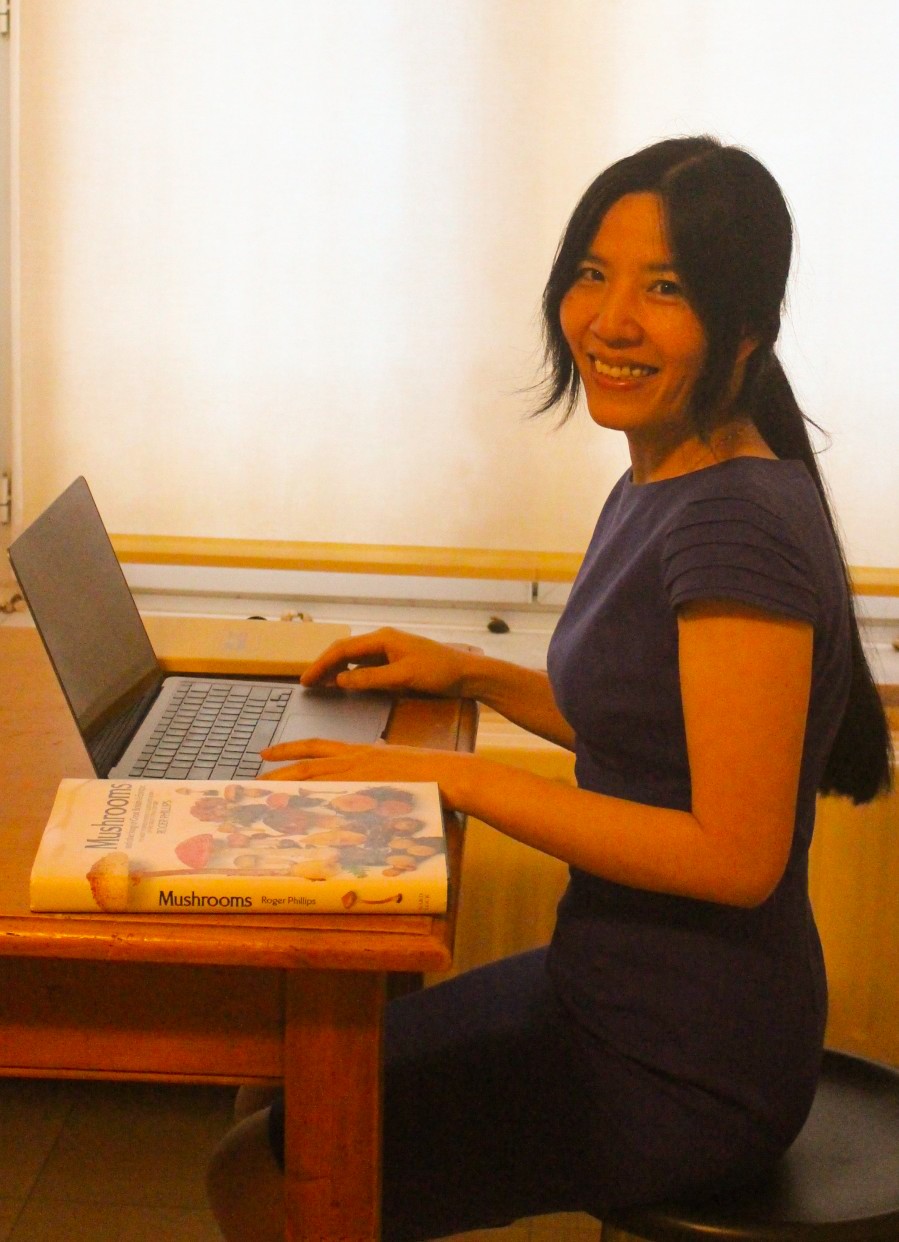You are here :
- EUTOPIA website
- Home
- Portfolio
- Resarch
- SIF - Post-Doctoral Fellowships
SIF 2nd Cohort Fellows - Hanh Tran, Vrije Universiteit Brussel

Curriculum Vitae
-
Education
Hanh TM Tran obtained her Ph.D. degree in Industrial Biotechnology (Prince of Songkla University, Thailand) in 2009, MSc in Mycology (Kasetsart University, Thailand) in 2006, and BSc in Biology (Hanoi University of Education, Vietnam) in 2003.
-
Experience
Prior to her Ph.D. completion, Hanh Tran worked as a lecturer at the Faculty of Environmental Management at Prince of Songkla University, then, moved back to her home country (Vietnam) and started working for International University – VNU HCM in 2010. From 2011 to 2012, she was a visiting scholar at the University of Arkansas (USA) under the Fulbright Visiting Scholar Program. She then worked as a postdoc at the University of Arkansas from 2014-2015 under the American Association of University Women's Postdoctoral Fellowship. In 2015, she resumed her job at International University – VNU HCM.
-
Publications/Research achievements
Hanh Tran has published 18 peer-reviewed articles, two book chapters, and a book on slime molds and has been an Associate Editor of the Slime Molds Journal (2021-present). From 2019 to 2020, she served as handling Editor for the MycoAsia Journal.
She has also been invited speaker of several international conferences including The International Conference for Women in Engineering, Asian Mycological Congress, and ASEAN Academic Society International Conference. She was also the speaker of the webinar on myxomycetes for the International Program in Biotechnology at Prince of Songkla University (Thailand) in 2021 and Invited lecturer at Lincoln Memorial University (USA) in 2012. In 2021, she was nominated by the Mycology Society of Vietnam for the 2021 Best Young Asian Mycologist Award.
She has also reviewed manuscripts for a number of international journals e.g. Sydowia, Chemosphere
Journal, Planta Medica Journal, Karstenia Journal; Journal of Phytotaxa, Annals of Microbiology
Journal, Experimental Biology Journal, etc.
Her list of publications can be found at: https://www.researchgate.net/profile/Hanh-Tran-42/research
Research Project:
Neuroprotective Effects and Anti-Alzheimer Activities of Melanin from Puffballs and Slime Molds
Alzheimer’s disease (AD) is the most common and severe neurodegenerative disorder. Currently, there is no drug available for treatment. Acetylcholinesterase (AChE), butyrylcholinesterase (BChE), monoamine oxidases (MAO-A and MAO-B), amyloid precursor protein-cleaving enzyme 1 (BACE1), and glycogen synthase kinase-3 β (GSK-3 β) are the key enzymes in the AD pathogenesis. Thus, substances that can inhibit these key enzymes would have the potential for AD treatment. In fact, a number of MAO-B, ChE and GSK-3 β inhibitors are at the clinical evaluation stages for AD treatment. In addition, several phytochemicals with antioxidant, anti-inflammatory, and neuroprotective effects have been found to be promising for AD prevention. Microbial melanins have been found to have powerful bioactivities, especially antioxidant, anticancer, and anti-inflammatory activities. Melanins also could protect cells from neurotoxins and oxidative stress. In addition, it has been reported that modification of melanins by amino acids could enhance their water solubility and bioactivities.
Puffballs and slime molds are unique organisms, especially the latter, and there has not been any study on their melanins. Therefore, the major objectives of this proposed research are to (1) Collect and identify melanin-producing slime molds and puffballs from Belgium, (2) Extract, purify and characterize melanins from the collected samples, (3) Evaluate cytotoxicity and neuroprotective effects of the melanins and amino acid modified melanins (melanin derivatives), (4) Evaluate anti-Alzheimer activities (AChE, BChE, MAOs, BACE1, and GSK-3 β inhibitory activities) of melanins and melanin derivatives and (5) Structural analysis of the potential melanins and melanin derivatives by NMR.


